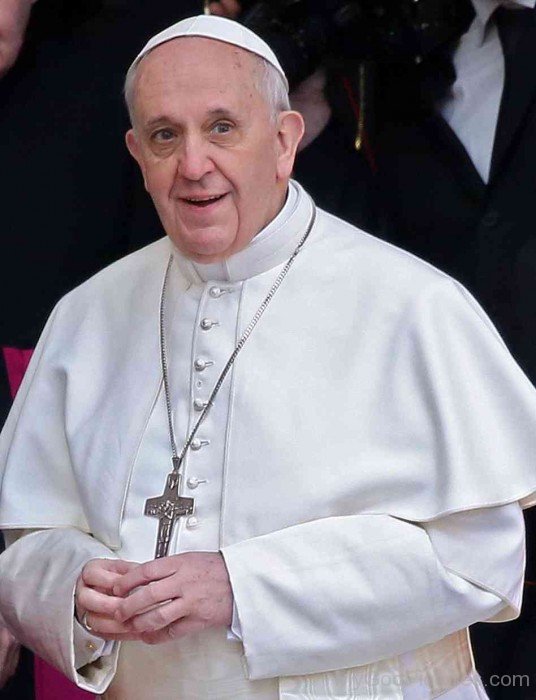Did Pope Francis Really Say All Religions Lead to God? This question has sparked significant debate and controversy among religious scholars, theologians, and the general public. The statement attributed to Pope Francis has been both celebrated and criticized, leading many to wonder about its authenticity and implications. As one of the most influential figures in global Christianity, the Pope's words carry immense weight, making it crucial to understand what he truly meant.
The controversy surrounding Pope Francis's alleged statement highlights the complexities of interfaith dialogue in today's world. In an era where religious diversity is more prominent than ever, understanding how different faiths relate to one another is essential. This article aims to delve into the truth behind the Pope's remarks, exploring whether he indeed said that all religions lead to God and examining the broader context of his teachings on interreligious harmony.
Understanding the Context: Pope Francis's Words in Singapore
Pope Francis's visit to Singapore in September 2024 brought attention to his views on interreligious dialogue. During a question-and-answer session with a young audience, he reportedly stated that all religions are paths to God. This remark was quickly shared by popular evangelists online, sparking widespread discussion. However, it is important to consider the setting and purpose of this event, as it was designed to promote unity and mutual respect among diverse faith communities.
By speaking off-the-cuff and using metaphors such as comparing religions to languages, the Pope aimed to emphasize the common goal of seeking God. His choice of words may have been misinterpreted or oversimplified in certain contexts, leading to confusion about his actual message. Understanding the nuances of his speech requires looking beyond isolated quotes and considering the broader themes of his address.
In addition, the Pope's emphasis on dialogue and collaboration between different faiths reflects his commitment to fostering peace and understanding worldwide. While his comments might challenge traditional theological perspectives, they align with his ongoing efforts to build bridges across cultures and religions.
Clarifying Misunderstandings: What Did Pope Francis Truly Mean?
Despite the initial headlines suggesting that Pope Francis equated all religions as equally valid paths to God, further analysis reveals that this interpretation oversimplifies his position. Cardinal Blase Cupich, Archbishop of Chicago, clarified that the Holy Father did not intend to suggest doctrinal equivalence among various faiths. Instead, his remarks focused on the shared human desire for transcendence and connection with the divine.
Cardinal Cupich explained that Pope Francis views interreligious dialogue as an opportunity to learn from one another while respecting each tradition's unique identity. By acknowledging the commonalities among different spiritual practices, the Pope encourages people of all backgrounds to work together toward greater harmony and compassion. This approach does not diminish the importance of specific beliefs but rather highlights their potential to inspire positive change.
Furthermore, the Pope's analogy of religions as languages serves to illustrate how diverse expressions of faith can coexist without compromising core principles. Just as multiple languages convey similar ideas through distinct forms, so too do various religious traditions offer complementary ways of approaching the ultimate truth.
Interpreting the Pope's Message: A Path Toward Unity
Throughout his papacy, Pope Francis has consistently advocated for increased cooperation and understanding between different religious groups. His statement in Singapore exemplifies this vision by emphasizing the universal quest for meaning and purpose that transcends denominational boundaries. Rather than undermining established doctrines, his words invite reflection on how individuals can grow closer to God through authentic relationships with others.
For Catholics and non-Catholics alike, the Pope's teachings provide valuable insights into navigating modern challenges related to pluralism and tolerance. By embracing open-mindedness and empathy, we can cultivate environments where constructive conversations flourish, ultimately enriching our collective spiritual journey. It is essential to recognize that such dialogues do not require abandoning cherished convictions but instead strengthen them through exposure to alternative viewpoints.
In conclusion, the controversy surrounding Pope Francis's alleged claim that all religions lead to God stems primarily from misunderstandings and selective reporting. When viewed within the proper framework of his broader mission, his statements reflect a balanced approach to engaging with diverse belief systems while remaining firmly rooted in Catholic tradition. Through continued education and engagement, we can honor the richness of our respective heritages while striving for greater unity under the banner of shared humanity.

